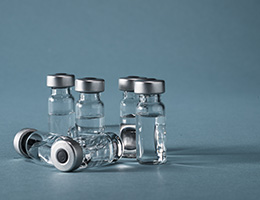
Jan. 24, 2019—Here's a crucial question if you're a cancer patient or survivor: Have you rolled up your sleeve for a flu shot this season?
That annual shot is a must. Cancer or a history of it raises your risk for serious—and sometimes deadly—flu complications, according to the American Cancer Society and other experts.
If you're not vaccinated yet, it's not too late to protect yourself. Though the flu usually peaks between December and February, it can lurk as late as May.
Take note, though, that people with cancer should be sure to get a flu shot—not a nasal spray vaccine. A flu shot is made from a harmless, dead virus. But a spray contains a very weak, live virus. And even a very weak virus might make you ill if your immune system has been compromised by cancer treatments.
Along with getting your flu shot, ask your doctor if you need pneumococcal shots. They protect against pneumococcal pneumonia, a life-threatening flu complication.
Make a plan, just in case
While vaccination offers crucial protection from the flu, it's not foolproof. So ask your doctor what to do if you do get the flu. Talk about:
- What symptoms your doctor needs to know about. Some might be a sign of a serious infection unrelated to the flu.
- Whether you should get an antiviral drug if you have the flu. This medicine can make your illness milder and shorten how long you're sick. It may also prevent severe flu complications.
- How to get an antiviral drug quickly if you need it.
Also call your doctor right away and ask if you should take an antiviral drug if:
- You've been within 6 feet of someone known or suspected to have the flu.
- You were treated for cancer in the last month.
- You have myeloma or a blood or lymphatic form of cancer.
Prompt treatment can help keep you from getting the flu, especially if you haven't gotten a flu shot yet.